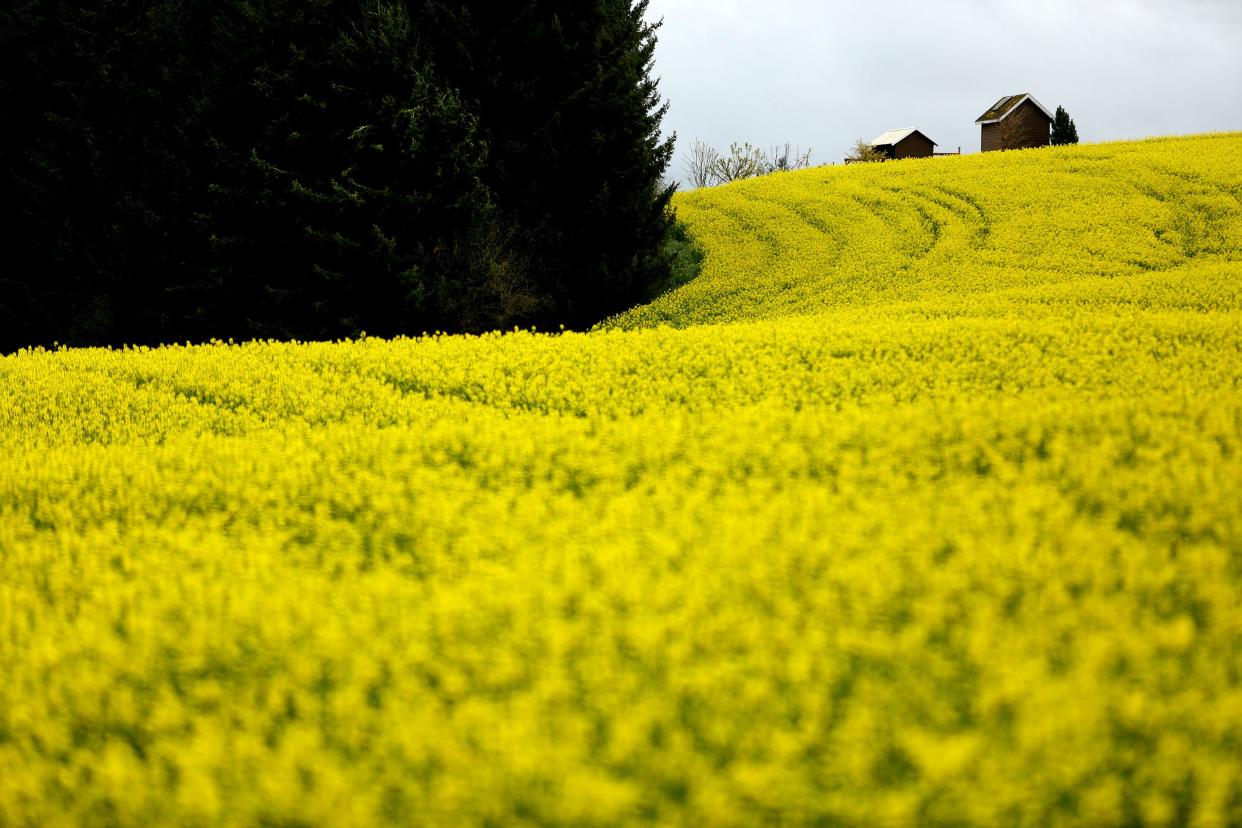Oregon considers permanent restrictions on growing canola in the Willamette Valley

The Oregon Legislature is considering making a 500-acre limit on canola crops in the Willamette Valley permanent. That could end a three-decade-long fight among the state’s seed growers.
In addition to the limit, Senate Bill 789 would require canola growers to be licensed by the Oregon Department of Agriculture. Violators could be fined as much as $25,000.
The public can weigh in on the proposal at a committee hearing Thursday.
Proponents of the near-total ban say canola threatens the valley’s renowned specialty seed industry. Much of that industry is made up of brassicas, such as broccoli, kale and cabbage seed.
Canola can cross-pollinate with those crops, and can carry pests, disease and weeds.
Specialty seed companies from as far away as Japan and the Netherlands have testified in favor of the bill, saying there are few other places in the world that brassica seeds can be grown.
The bill’s opponents, however, say that with careful planning, both industries can co-exist.
“Canola as a rotation crop for Willamette Valley farmers is invaluable, for soil health, weed control in subsequent grass seed crops, crop diversity and economic diversity,” Karen Sowers, executive director of the Pacific Northwest Canola association, told a legislative committee.
Decades of controversy
In 2013, as interest increased in using canola as a biofuel, ODA loosened rules that had excluded the plant from being grown in the Willamette Valley for two decades.
That move brought protests from specialty seed growers, who say industrial canola has the potential to contaminate edible canola and other crops, such as radish and cabbage, and can spread pests and diseases to other vegetable crops.
In response, the 2013 Legislature passed a bill setting a six-year moratorium on commercial canola production in the Willamette Valley.
The bill allocated about $700,000 for Oregon State University to study the issue during the moratorium.
It allowed for a total of 500 acres of test plots of canola to be grown for three years, then monitored for pests and the spread of volunteer canola plants for an additional five years.
The OSU study concluded cross-pollination could be avoided if canola fields were pinned within the Willamette Valley Specialty Seed Association system to maintain isolation distances with sexually compatible crops.
In 2015, the legislature amended the law, allowing ODA to authorize up to 500 acres for commercial production of canola in the Willamette Valley and extending the moratorium to Jan. 2, 2020.
In 2019, SB 885 extended the 500-acre authorization to June 30, 2023.
Seed grower fight
Oregon’s brassica seed industry brings in about $1.52 million per year, and produces 90% of the world’s supply of some brassica seed varieties, according to the Oregon Organic Coalition.
“Throwing the vibrant and growing seed sector under the bus to please a few vocal canola farmers simply makes no economic or policy sense,” said Amy Wong, the coalition’s board chair.
One of the bill’s main opponents is Rep. Anna Scharf, R-Amity, whose family farms just outside Salem, growing canola since 2013.
Scharf is a previous president of the Willamette Valley Oilseed Producers Association, and serves on the board of the Pacific NW Canola Association and the U.S. Canola Association.
Scharf said the bill allows ODA to “act as the legal strong arm for a few powerful seed companies’ industries in order to manipulate and falsely inflate the specialty seed market through legislation.”
The bill also is opposed by some of Oregon’s biggest natural resource industry groups, including Oregonians for Food & Shelter, Oregon Wheat Growers League, Oregon Cattlemen’s Association and Oregon Dairy Farmers Association.
“While we are sympathetic to the specialty seed industry and the concerns being raised about cross-pollination and seed purity, there is no justification for the continued and permanent restriction of a legal and viable crop like canola, particularly given the variety of best management practices that could be implemented as an alternative to permanent restrictions,” the groups wrote in committee testimony.
The Oregon Farm Bureau is neutral on the bill.
What's next
The bill passed the Senate last month on a vote of 16 to 12.
It is scheduled for a public hearing at 3 p.m. Thursday in the House Committee on Agriculture, Land Use, Natural Resources and Water. Written comments can be submitted at https://olis.oregonlegislature.gov/liz/2023R1/Testimony/HALNRW/SB/789/2023-05-11-15-00?area=Measures.
Tracy Loew covers the environment at the Statesman Journal. Send comments, questions and tips to tloew@statesmanjournal.com, 503-399-6779. Follow her on Twitter at @Tracy_Loew
This article originally appeared on Salem Statesman Journal: Oregon considers permanent restrictions on growing canola in the Willamette Valley

